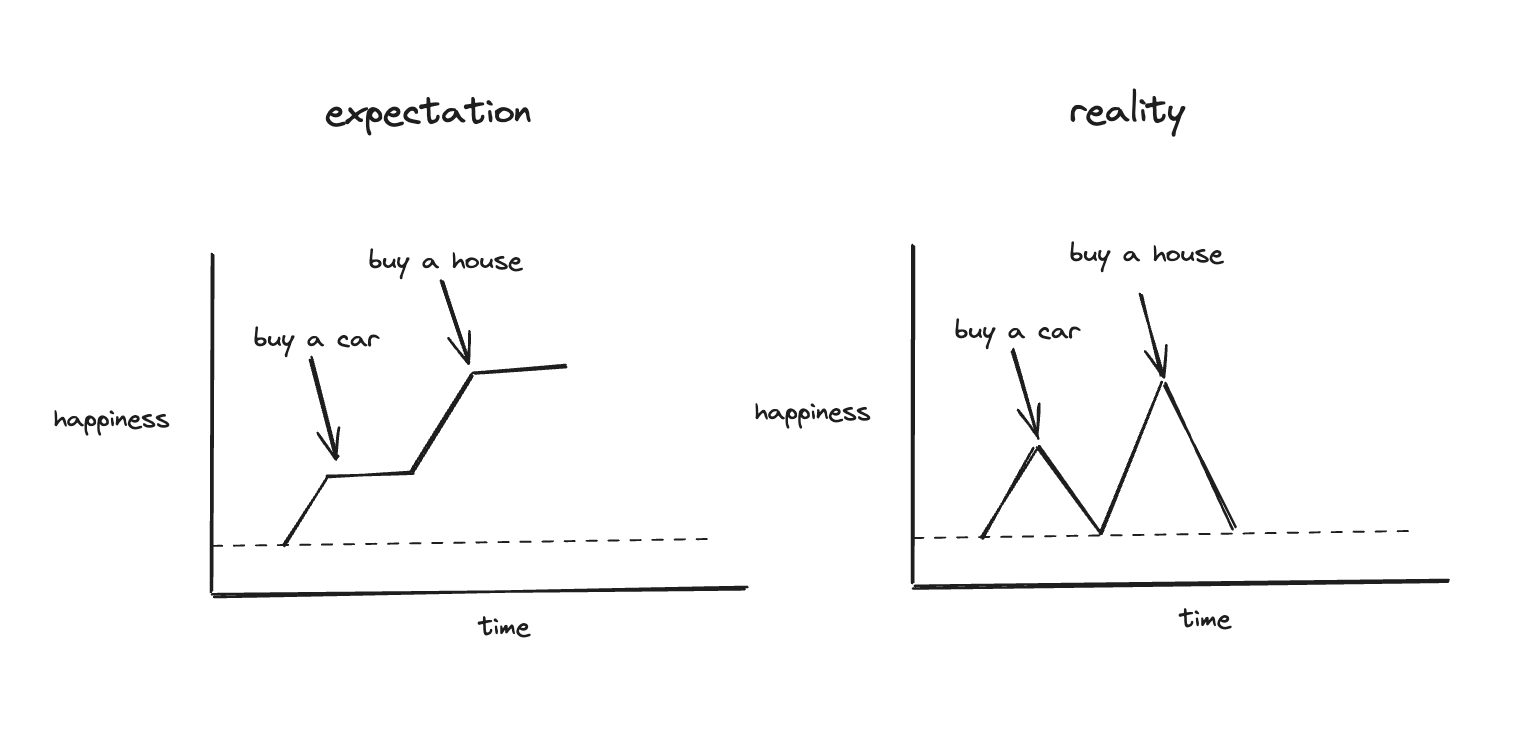Working theory on happiness
Have you ever caught yourself thinking that a certain achievement or possession will make you happier? And when you finally attained it, did it bring the lasting happiness you expected?
This question led me to discover the concept of hedonic adaptation.
Hedonic treadmill, also known as hedonic adaptation, is the observed tendency of humans to quickly return to a relatively stable level of happiness despite major positive or negative events or life changes.
Simply put, the initial happiness you feel will fade, returning you to your normal level of happiness. The same applies to sadness.

We are in an endless chase after our happier selves, without getting anywhere, like running on a treadmill.
Let’s explore some everyday examples of hedonic adaptation:
- When you receive a raise or higher-paying job, there’s an initial surge of happiness. However, over time, you get used to the new income level and lifestyle. You start to aim for yet another raise or job change.
- In the start of a relationship, we experience a honeymoon phase of elevated excitement, affection and joy. Over time, the partners get accustomed to each other and the intensity of feelings may diminish.
- We often long for seasonal changes, wishing for summer during the rains and for rain in summer.

Does it mean that we can never truly achieve “happiness”? No.
Hedonic adaptation is not a pessimistic concept. Instead, it helps us understand that external circumstances and material possessions have only a temporary effect on our overall happiness.
By practicing the act of gratitude, we shift our focus from what we lack to appreciating what we have. Embracing change and variety can aid in this process by offering a fresh perspective. Consider how we often love things more when we let them go.
Although we tend to return to a baseline level of happiness, I believe it’s indeed possible to raise this baseline if we direct our efforts towards sustained improvements in key life areas — relationships, health, and wealth instead of chasing the next shiny star.
Also, if we reframe our perspective, acknowledging the role of hedonic adaptation can also make us more resilient to adversities.
After all, isn’t it just another way to say this too, shall pass.